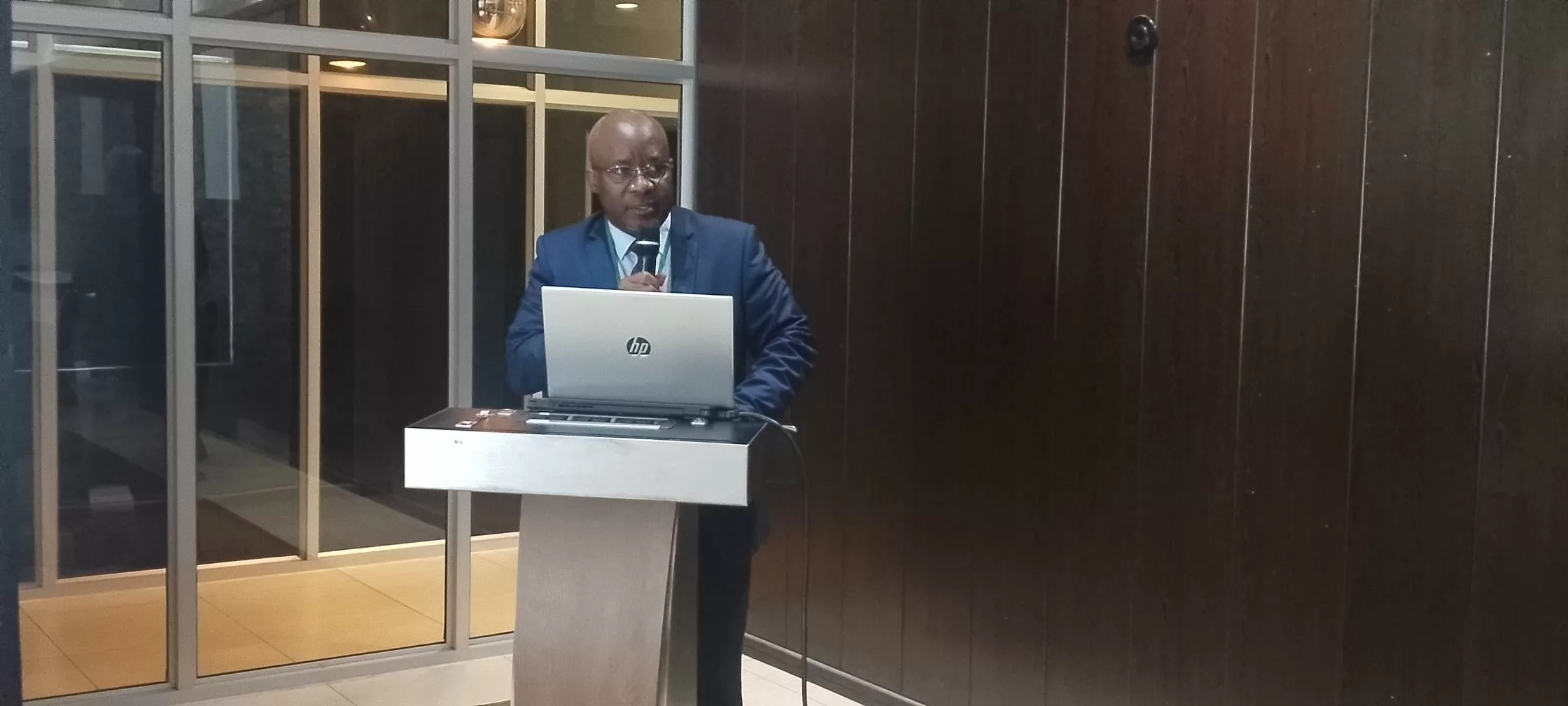A workshop to develop a robust and targeted communications strategy for the African Union (AU) Sanitary and Phytosanitary (SPS) Programme in Africa is underway in Lusaka, Zambia with a view of outlining clear guidelines and approaches for communicating key messages, advocacy, and awareness creation among key audiences.
In welcome remarks read by Chiluba Mwape, the Senior Advisor – Sanitary and Phytosanitary Systems of the African Union Commission (AUC), on his behalf, Dr. Godfrey Bahiigwa, the Director of the AUC Commission on Agriculture and Rural Development underscored the importance of working towards a modern continental, coherent, and integrated SPS system supportive of food security, shared prosperity, and health for all Africans.
“The SPS Programme for Africa contributes to achieving the Comprehensive Africa Agriculture Development Programme (CAADP) Malabo goal of tripling intra-African (and global) trade and support the AfCFTA’s Annex 7 objectives to “facilitate trade while safeguarding human, animal or plant life in the territory of the Member States.
“It enhances cooperation and transparency in the development and implementation of SPS measures to ensure that they do not become unjustifiable barriers to trade, and enhances the technical capacity of Member States for the implementation and monitoring of SPS measures while encouraging the use of international standards in the elimination of trade barriers,” he said
He said despite notable progress made, significant challenges remain in ensuring that every Member State implements science-based SPS systems. In addition, limited resources, weak institutional frameworks, and insufficient infrastructure continue to impede efforts to meet international standards and respond to SPS-related emerging and re-emerging threats to human, animal, and plant health as well as the environment at large.
Dr. Bahiigwa emphasised the need to make data-driven and evidence-based decision-making a core agenda in strengthening SPS governance in Africa.
“We must also strengthen our surveillance and monitoring systems, continue to share information on emerging SPS issues, and engage in research and development of new technologies that will assist us in early warning and rapid response to food safety hazards as well as outbreaks of notifiable animal diseases and plant pests of economic importance,” he added.
In her introductory remarks, Peace Mutuwa, the Knowledge Management and Communication Officer of the African Union Commission (AUC) said SPS measures are crucial to facilitate intra-regional trade on the continent.
“SPS measures are crucial for safeguarding human, animal, and plant health, ensuring food safety, and facilitating trade. These measures aim to prevent the spread of diseases, pests, and contaminants while facilitating the safe trade of agricultural and food products. SPS issues continue to play a significant role in achieving continental commitments and strategies such as the African Union Agenda 2063 and CAADP Framework that promotes Agriculture transformation to improve livelihoods on the African continent. Despite its adoption, the AU SPS Policy Framework, SPS implementation in Africa remains lagging.
“The low level of awareness on the Africa SPS framework at the national and regional levels impedes effective SPS domestication and implementation, resulting in foodborne disease, pest invasion, reduced productivity, and market access loss. Furthermore, limited knowledge management, advocacy, and communication on SPS measures impede information and awareness dissemination among stakeholders, resulting in low compliance and inadequate support for SPS measures,” Mutuwa said.
The implementation of SPS measures has become an important precondition for access to global food markets, and increasingly, for high-value domestic markets in Africa. It is therefore pertinent to create the required awareness and communicate effectively about the planned and ongoing SPS measures put in place by various players on the global market.
Bob Okello, a Communication Consultant, said these measures should be communicated and complied with to be able to effectively attain the Malabo Declaration, especially Commitments on tripling intra-African trade in agricultural commodities through the implementation of the African Continental Free Trade Area (AfCFTA), ending hunger and halving poverty by 2025 and beyond.
Communication on SPS measures is a multifaceted approach that should promote awareness, transparency, and compliance. The SPS policy results framework clearly articulates the need to invest in strengthened strategic communication and knowledge management aimed at improving the flow of information within the SPS entities at continental, Regional, and National levels as well as between them and among various stakeholders.
To achieve this goal, AU requires a comprehensive SPS communication and advocacy strategy that would enhance outreach, visibility, advocacy, political ownership and action, and resource mobilization, aligned to knowledge management and learning to speed up implementation and investment by different actors. In addition, the strategy should strengthen engagement, coordination, and partnership in SPS communication to support various SPS initiatives and processes. The communication strategy will model the SPS program as the first choice entry point to facilitate intra-regional trade on the continent, deepening understanding of the value of SPS measures in trade.
Therefore, the Communications Strategy on SPS remains critical for effective and impactful strategic communication efforts. This strategy will guide and sustain the implementation of communication activities to improve public awareness, stakeholder engagement, and compliance with SPS regulations.






